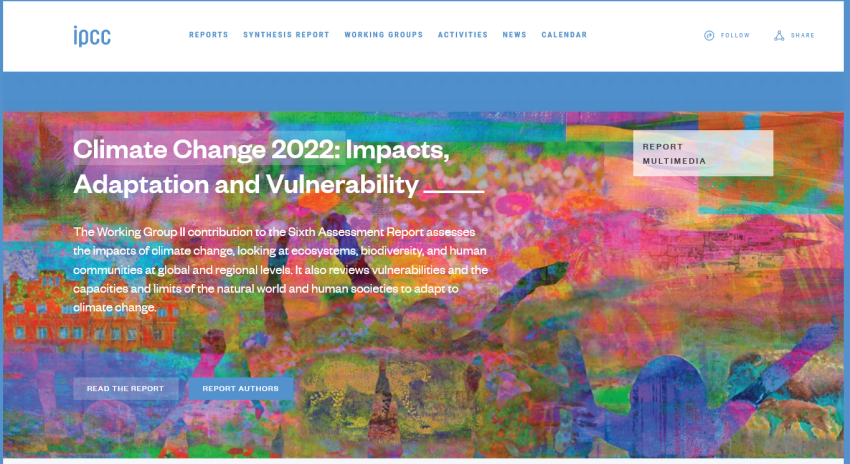The Intergovernmental Panel on Climate Change (IPCC) is the United Nations body for assessing the science related to climate change. IPCC’s main task is preparation of regular reports that assess the state of scientific knowledge concerning climate change. These include assessment reports, special reports and methodology reports. The IPCC was created in 1988 by the World Meteorological Organization (WMO) and the United Nations Environment Programme (UNEP). IPCC is made up of 195 member governments who are also members of the United Nations or WMO. The prime objective of the IPCC is to provide governments at all levels with valid scientific information they can use to develop climate policies, including programs for mitigation and adaption.
IPCC reports provide input into international climate change negotiations. Thousands of people from all over the world contribute to the work of the IPCC. For the assessment reports, experts volunteer their time as IPCC authors to assess the thousands of scientific papers published each year. These assessments contribute towards the comprehensive summary of the complex factors of climate change, their impacts and future risks. IPCC reports help to guide programs for adaptation and mitigation that can help to reduce those risks. IPCC reports give policymakers regular scientific assessments on climate change, its implications and potential future risks, and put forward adaptation and mitigation options. The most recent report from IPCC is The Working Group II report released on 28 February 2022. It provides the latest understanding of the current rate of temperature warming means for everyone, for our ecosystems and the planet.
IPCC Chair’s Statement at the opening of the 56th Session of the IPCC and 14th Session of Working Group II
“The report is a dire warning about the consequences of inaction. It shows that climate change is a grave and mounting threat to our well-being and a healthy planet. It also shows that our actions today will shape how people adapt to climate change and how nature responds to increasing climate risks. Severe climate change impacts are already happening. Vulnerable people, those marginalized socially and economically, are the most exposed to climate change impacts – and have the fewest resources to adapt” remarks made by the Chair of IPCC at the press conference held on 28 February 2022
